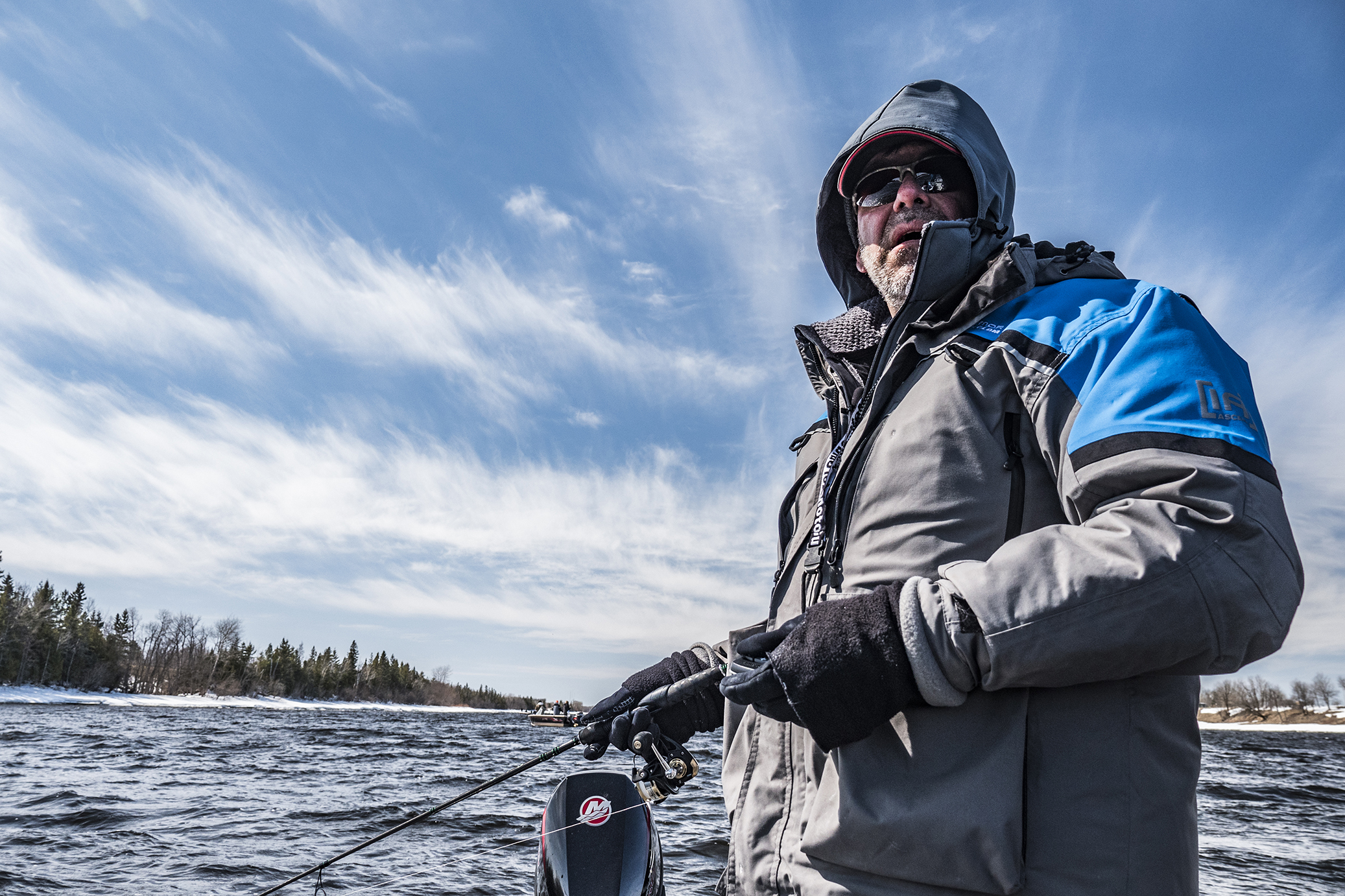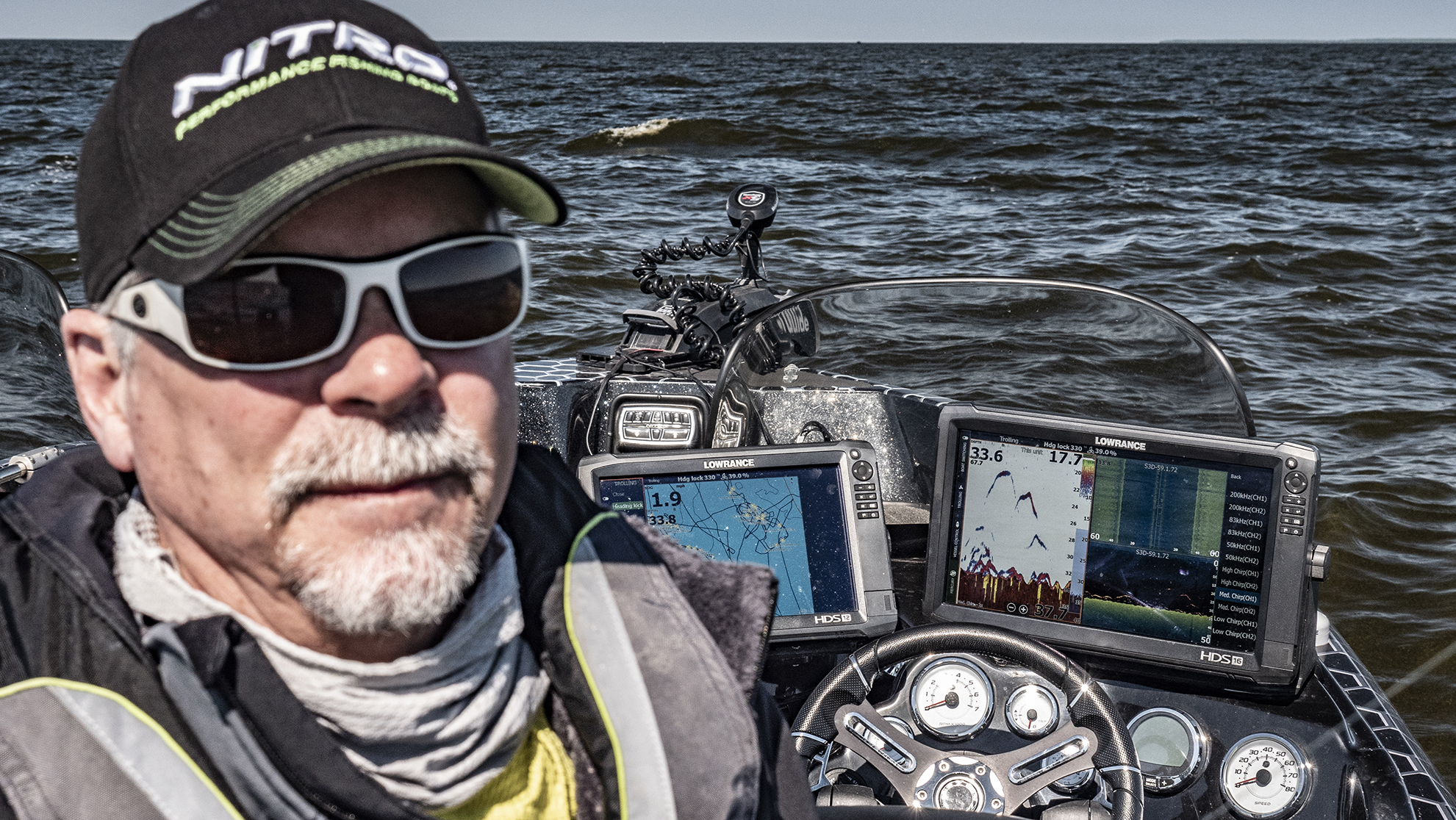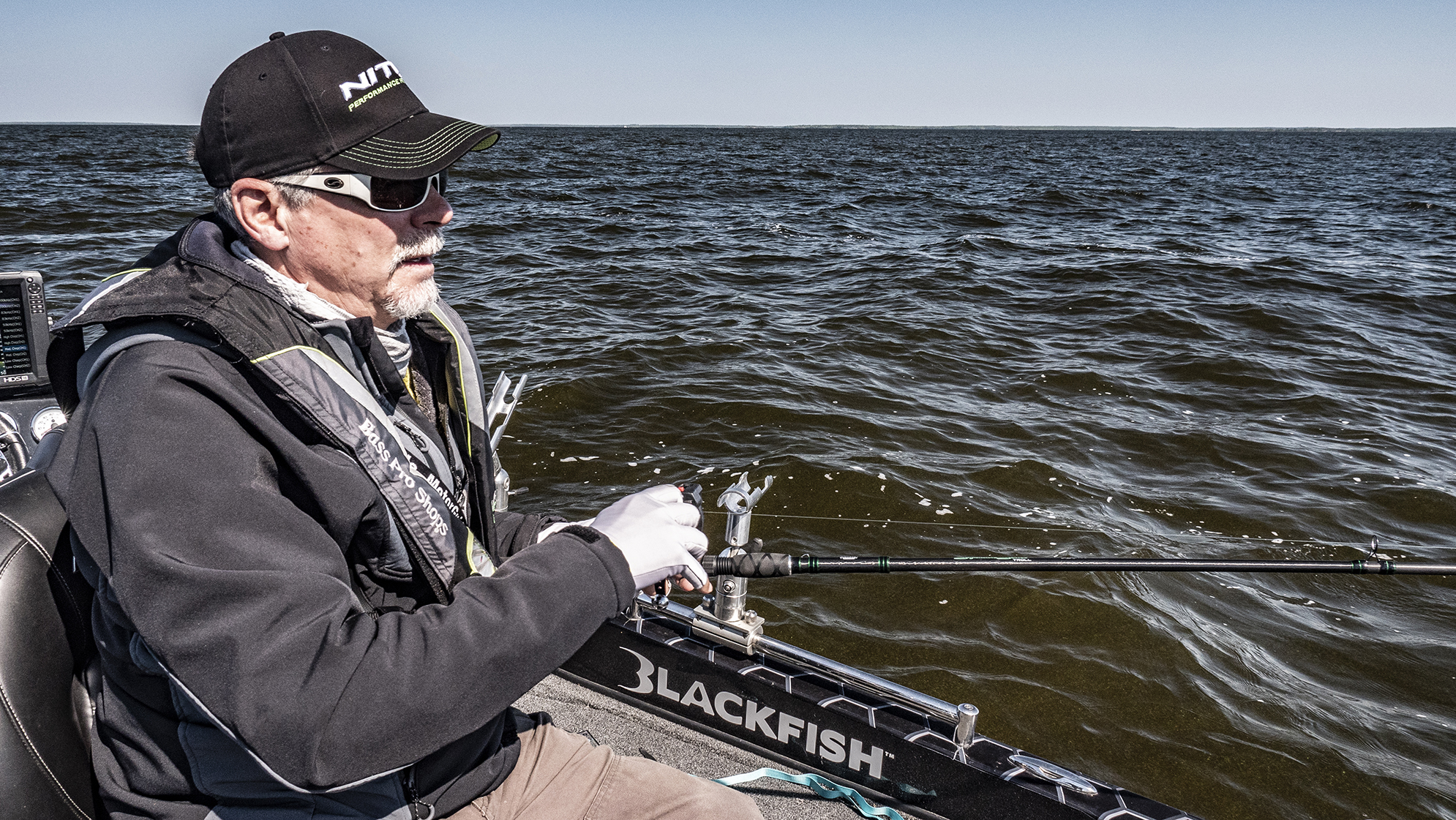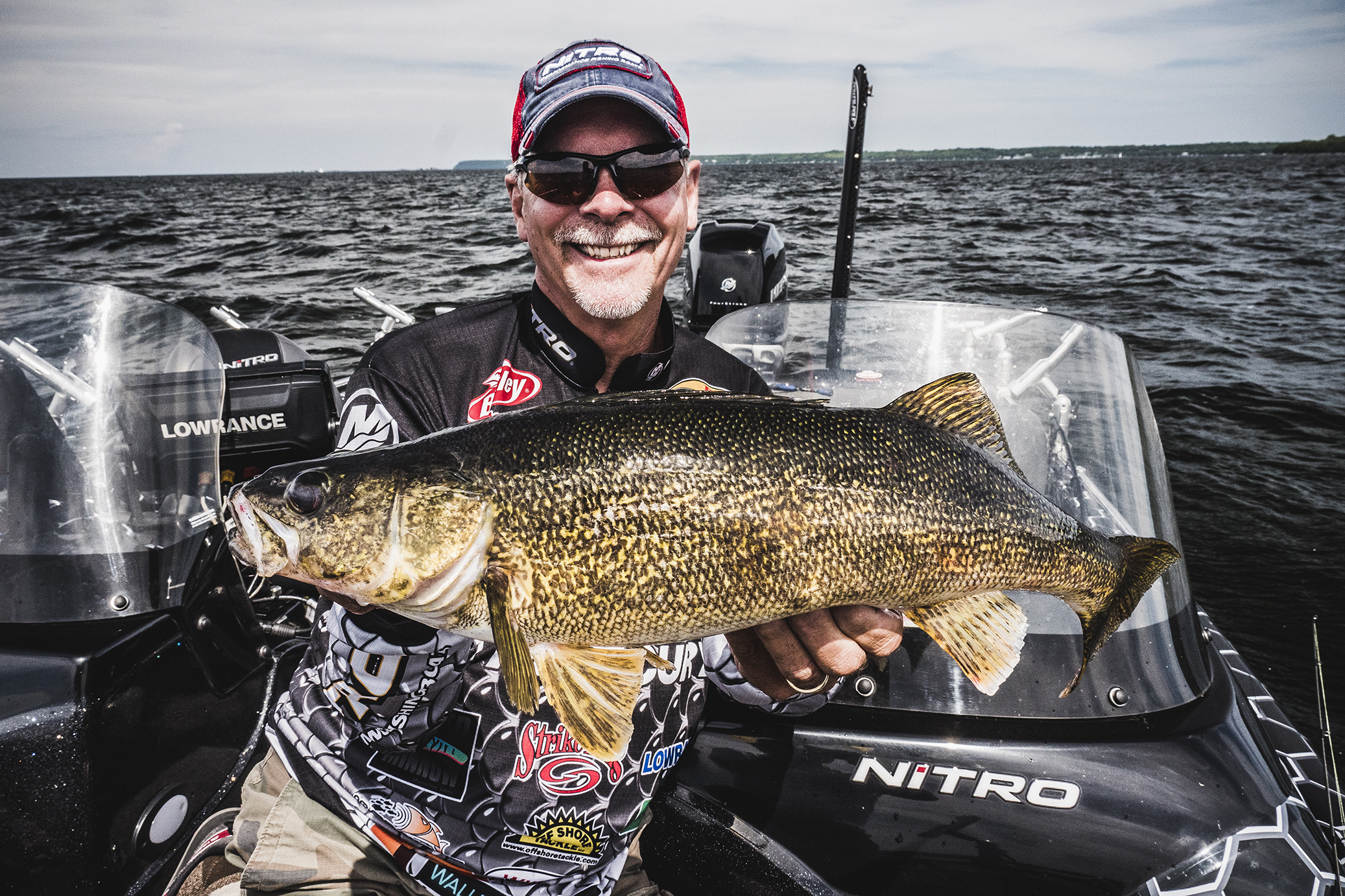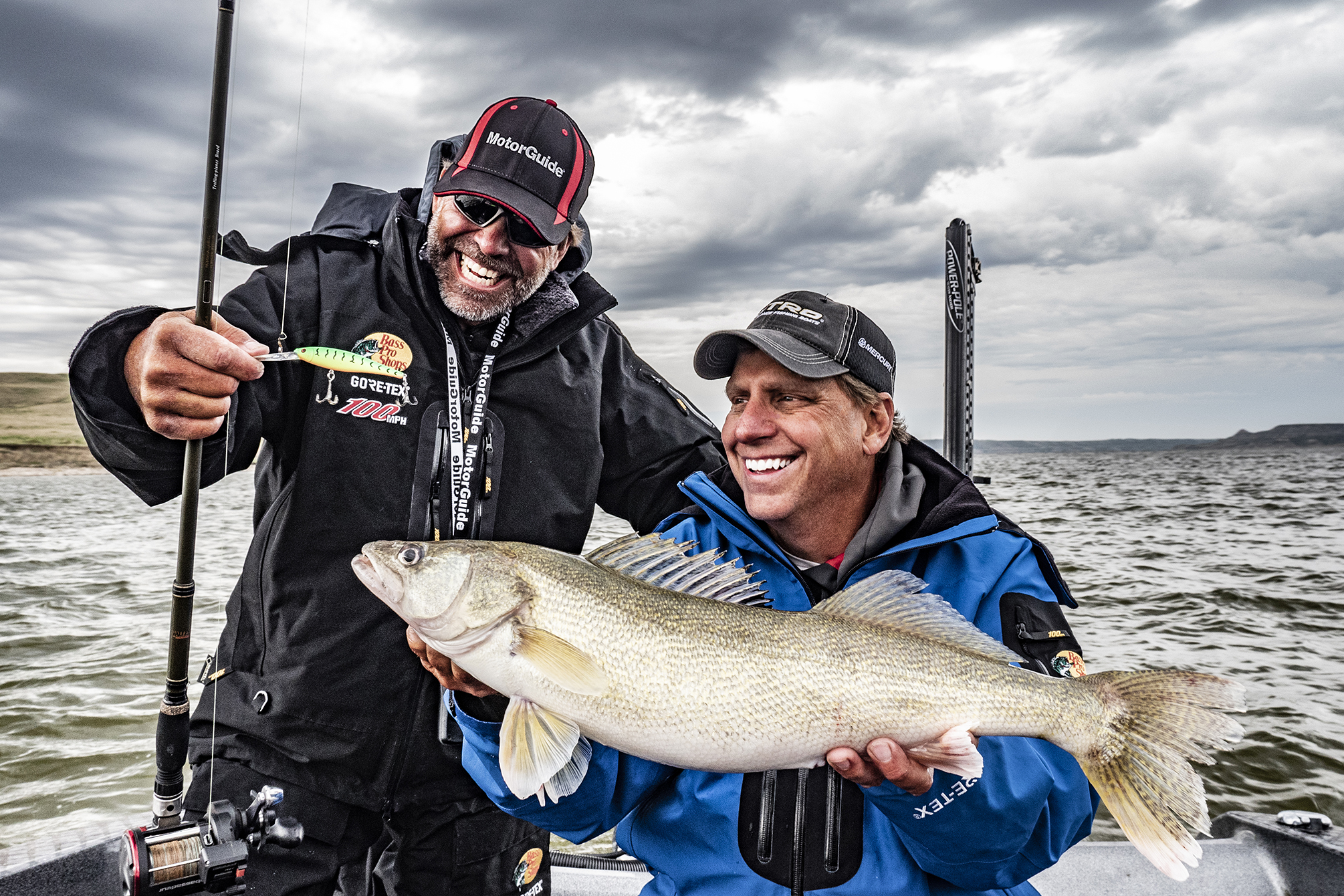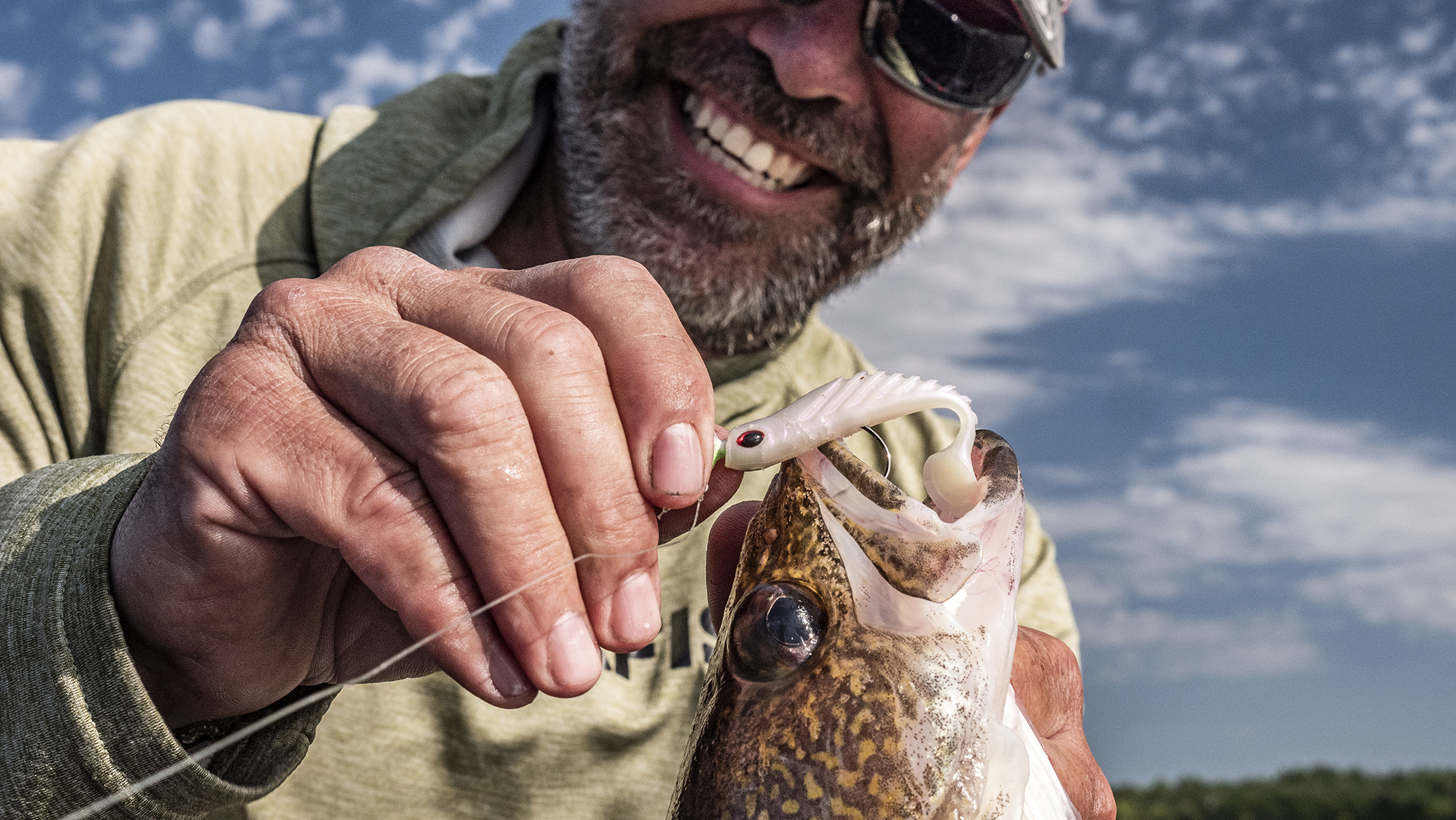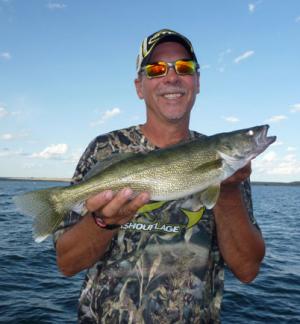 A good walleye angler knows that hitting the water with a head full of preconceived notions is rarely a good idea. You want to have an open mind to be able to adapt to current conditions on any body of water. But it is a good idea to at least have a plan in place before you launch the boat … some idea of where the fish might be and what you’re going to do to start trying to catch them. That’s pretty much the process we use anytime we go fishing, whether it be for a tournament or just to go have some fun with friends or family.
A good walleye angler knows that hitting the water with a head full of preconceived notions is rarely a good idea. You want to have an open mind to be able to adapt to current conditions on any body of water. But it is a good idea to at least have a plan in place before you launch the boat … some idea of where the fish might be and what you’re going to do to start trying to catch them. That’s pretty much the process we use anytime we go fishing, whether it be for a tournament or just to go have some fun with friends or family.
Case in point; Gary recently made a trip to a large lake in Michigan’s Upper Peninsula to shoot an episode for The Next Bite TV show; a lake he had ice fished, but never fished during the open water season. The lake is known for putting out numbers of small walleyes, but the occasional trophy does get caught on occasion. First order of business was to visit the local bait shop to find out what the fishing had been like lately, what baits were hot and what types of areas on the lake were putting out fish. After some friendly conversation with the shop owner regarding recent weather patterns and recent fishing reports, Gary walked out with a map in hand marked with a few good starting points.
The lake has a lot of sharp breaking structure in the main basin area and large weed bed areas on both the north and south ends. The weeds had been producing well for some folks in the evenings, but recent weather had kept most anglers shore-bound over the past week or so. This was mid-summer however, and Gary was pretty sure that while the weeds would be good for fish moving up to feed in the evening, the bulk of the walleyes would be relating to the main-lake breaklines during the day. The plan starting out then was to spend a little time early in the day casting small jigs tipped with GULP! Minnow to the weed edges, but then spend the bulk of the day working bottom bouncers and spinners with crawlers on the main lake structure; A solid plan for summer walleyes on a natural lake.
The shallow weed bite seemed like a good bet to begin with. The skies were overcast with a slight threat of precipitation, typically good conditions for walleyes to feed shallow. But after 90 minutes and only a couple panfish and a hammer-handle pike to show for the effort, the shallow weed bite was abandoned.
Confidence was high as the crew rigged up the bottom bouncer rods and Gary took his place on the bowmount trolling motor to begin working the contours on the main lake shorelines. Even as the rain began to fall, the spirit in the boat was not dampened … they had a good plan. It ended up being a longer-than-anticipated day however. Oh, walleyes were caught. A handful of short little “fish-sticks” were caught, but really nothing “camera worthy”. And the weather was deteriorating with every passing hour. As it turned out, there was a lot more structure to explore on this lake than Gary had figured on. A change in plan was in order. Gary knew from experience that a faster moving tactic, one designed to cover much more water was needed. It was time to pull out the trolling rods and crankbaits.
A little side note here. Anyone that walleye fishes knows that with all the techniques used to catch them comes a wide array of gear. You’ve got jigging rods, rigging rods, trolling rods and rods used for running bottom bouncers. While Gary usually does his fishing out of his 21 foot Nitro Walleye Tournament boat, for this outing he was showcasing a 19 foot boat with a more “fish and ski” layout; one that a good number of family-oriented multi-species anglers might be prone to using.
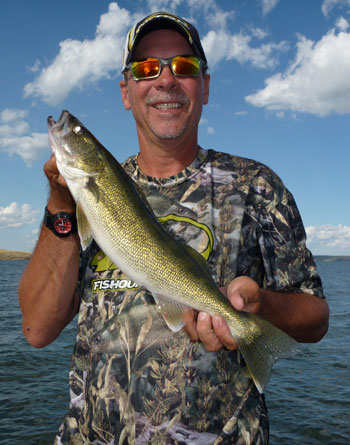 Since the trolling gear was not in the boat, the weather was not getting any better and it had already been a long day, the decision was made to head it in, regroup and start the next day with a new plan. A hot meal, warm shower and good night’s rest would put everyone back gear for the following day.
Since the trolling gear was not in the boat, the weather was not getting any better and it had already been a long day, the decision was made to head it in, regroup and start the next day with a new plan. A hot meal, warm shower and good night’s rest would put everyone back gear for the following day.
The sun was barely breaking over the pines when the crew launched the next morning. This time, they had the trolling gear onboard and ready to put to work. In fact, they barely got the rods out when the first fish hit. It was on a 5mm sized Berkley Flicker Shad set 100 feet back behind one of the Off Shore Tackle Side Planer Boards. This was text-book crankbait trolling; setting lines out to cover the contour from about 8 to 18 feet deep and using boards to spread out the pattern insured plenty of water would be covered on every trolling pass. Flicker Shads in Natural Perch, Fathead Minnow and Pearl White colors proved the most productive, but the true success came from the change in plan and covering more water more effectively than the day before.
After many trolling passes over several key stretches of structure over the course of the day, it became obvious that one specific small area or “sweet spot” was holding a larger number of better sized fish. This prompted Gary to make another change in plans. As his angling guest and cameraman worked on shooting an underwater release sequence for the TV show, Gary decided to rig up a bottom bouncer rod from the previous day with a Mustad Slow Death Hook on a plain leader baited with half a nightcrawler and slowly work it through the “sweet spot”. You can just about guess the result. Over the next 10 minutes, the trip’s 2 largest fish were hooked and landed, including one that was 27+ inches long.
Having a plan is important when you hit the water in search of walleyes. But being open minded to change will more often than not help that plan come together to get your Next Bite.

